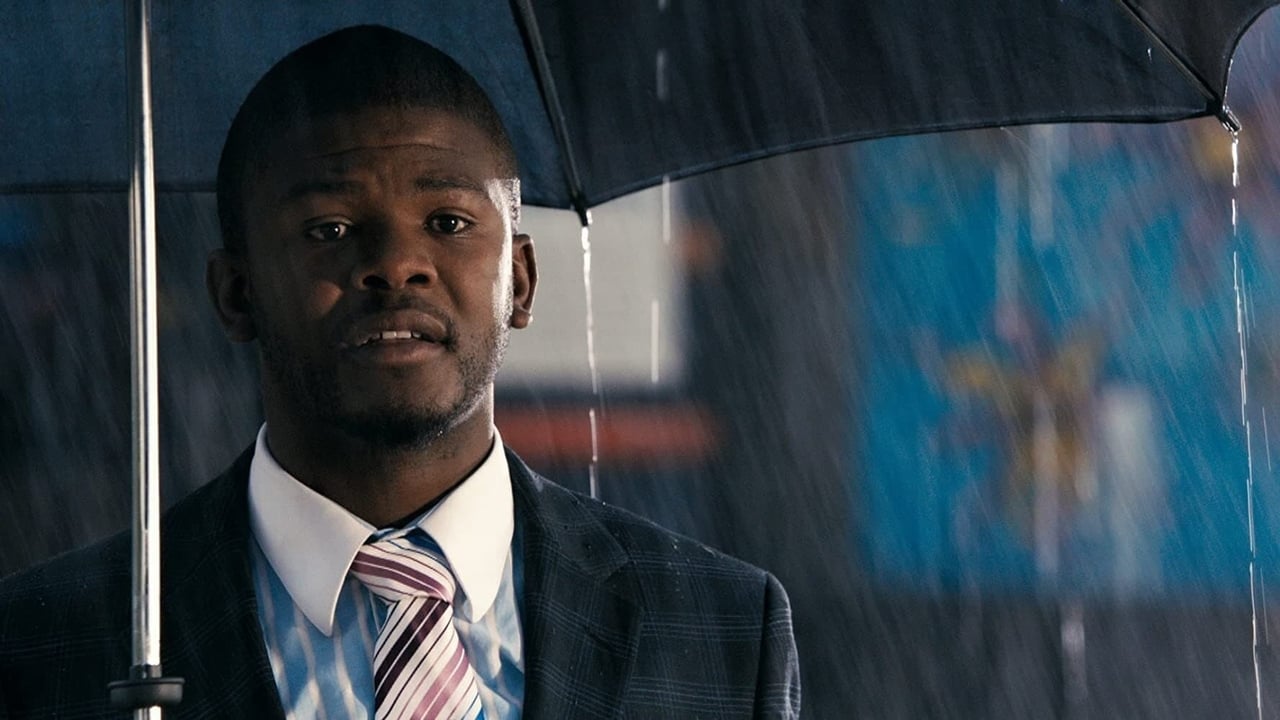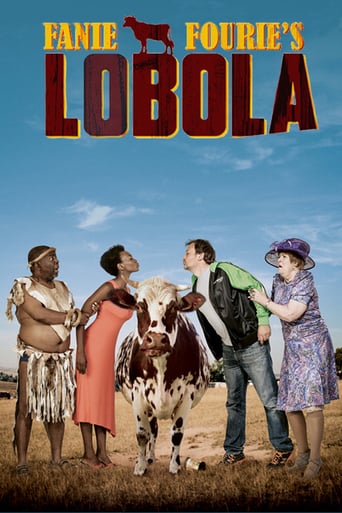

Highly Overrated But Still Good
... View MoreA story that's too fascinating to pass by...
... View MoreThe film creates a perfect balance between action and depth of basic needs, in the midst of an infertile atmosphere.
... View MoreAmazing worth wacthing. So good. Biased but well made with many good points.
... View MoreI'm sorry, I just don't appreciate it when cultural differences are thrown in your face. What could potentially have been a wonderful movie is ruined by the desperate urge to be ever-so-South African
... View MoreLoved this movie from start to finish! The storyline, characters, music, humor and colors of Africa kept me thoroughly entertained. Not to be missed!! So many aspects of the South African culture are brought to light in a subtle, almost teasing way including satire from the white as well as black perspective and their in-bred intolerance of one another's customs and traditions. Each one of the characters is so endearing in their own way - from Dinky and Fanie with their casual, easy acceptance of one another to Fanie's racist Afrikaner mother and brother who just don't get it. The movie is so entertaining and the music so catchy that it will have you singing and smiling your way through to the end.
... View MoreI have not read Nape'a Motana, author of Fanie Fourie's Lobola's book yet, but thoroughly enjoyed this movie which is based on it. Nape'a wrote in both English and Sepedi, I believe, while the film is in Zulu, English and Afrikaans (fully subtitled). It begins with a silly dare between brothers, and is an honest and positive story reflecting accurate and nuanced complex relationships between black and white in South Africa. Having said that, it is definitely a romantic comedy, in that it makes you both laugh and cry. The situations are true-to-life, many of the attitudes - especially of the older people - are very recognizable and you end up rooting for the hero and heroine in a big way.
... View MoreMost of us are familiar with the term "dowry." Still relevant in some Asian, Middle Eastern, and African countries, a dowry is the provision the family of the bride makes for her future security by transferring property or wealth to the groom and his family at the time of her marriage. Less familiar is the "brideprice" or "lobola," a South African custom where the groom pays the family of his fiancée (in cattle or cash) for her hand in marriage. According to the definition, "The custom is aimed at bringing the two families together, fostering mutual respect, and indicating that the man is capable of supporting his wife financially." Based on a novel of the same name by Nape 'a Motana, Henk Pretorius' romantic comedy Fanie Fourie's Lobola makes knowledge of the South African custom available to the rest of the world in its depiction of the difficulties a loving couple faces when they try to bridge the racial divide. Winner of the Audience Award at the Seattle Film Festival and spoken in a mixture of Afrikaans, English and Zulu, the movie is a joyous odyssey filled with vibrant colors, comic situations, and an exuberant soundtrack filled with the rhythm of local artists such as Freshlyground, Radio Kalahari Orkes, and Jack Parow.Like many films of the genre, FFL has contrived situations and a predictable outcome, yet half the fun is not where the film ends up, but the joy in getting there. The movie opens on a dare. Sarel (Chris Chameleon) an Afrikaans rock star, dares his brother Fanie Fourie (Eduan van Jaarsveld) to ask the next woman he sees in his cake shop to go with him to Sarel's wedding. The first one who enters is Dinky Magubane (Zethu Dlomo), a young Zulu woman who agrees to go with Fanie. The unlikely partners come from vastly different backgrounds with Fanie being raised in middle class surroundings in Pretoria, and Dinky growing up in a small village in Attridgeville, filled with rural shacks.Fanie calls himself an "artist panlebeater" who painfully restores cars battered in mishaps of one kind or another. Dinky is a university graduate with a keen intelligence and has plans to start her own business though she has been rejected twice for financing. He is taken by her beauty, telling her on their first date how "exquisite" she looks in her green gown. They soon find out, however, what they are up against when the "black pixel" is removed from the family wedding photo. The sincerity of their relationship also does not quell the opposition of Fanie's judgmental family (Marga van Rooy and Richard van der Westhuizen or Dinky's father (Jerry Mofokeng), a Zulu traditionalist, though the film treats all of its characters with respect.Dinky's father is willing to trade his daughter to the highest bidder and negotiates with those suitors he finds acceptable. Dinky, however, refuses to accept lobola, believing that it treats women as commodities to be bought and sold. The film, however, is neutral on the subject, depicting one view of lobola as a way of showing respect to the future wife and her family. Fanie must provide the lobola if he wants to win Dinky's hand but his failure to come up with the gift prompts his mother to tell him that it proves he isn't African. His reply, "If we're not African, what are we doing here?" does not solicit a response.While all of this sounds very serious, the film is, in essence, a broad comedy and the potential heaviness of the theme is lightened by situations we can all laugh about. While on the surface Fanie and Dinky are worlds apart and neither knows very much about the others culture, as they spend time in each others world, the boundaries begin to dissolve and it is clear that Pretorius believes that, in the new South Africa, love can transcend the racial barriers and the rigidity of outdated traditions.
... View More